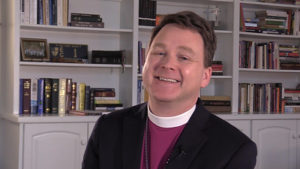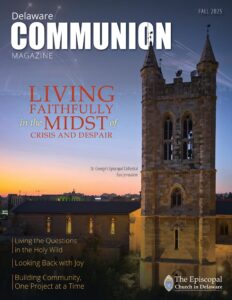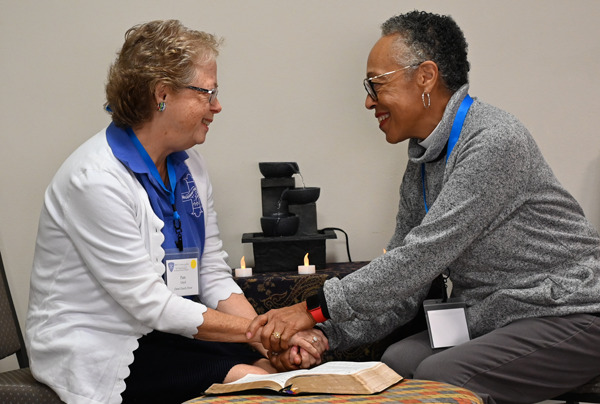They say bad news comes in threes. Maybe that’s true. In just the last couple of weeks I have heard of three instances from three different parishes across Delaware where active members made it clear to visitors that they weren’t welcome on Sunday morning, in word and action, saying, “I’m sorry, but you’re sitting in my seat.” The point was obvious: YOU, visitor, have made a mistake. You should move.
I am sure those visitors thought, “Yes, I made a mistake. I made a mistake coming here.” In a flash, a guest to our church feels that the people of Jesus might not be as welcoming as the sign out front says. For the record, these incidents all happened in parishes that I know are working hard to be welcoming. The clergy and people there are striving faithfully to preach and live out the love of Jesus. Sadly, it only takes one short, thoughtless encounter to undermine that work.
Hospitality lies at the heart of evangelism. We have been talking in Delaware and across the Episcopal Church about the power and importance of being good evangelists, and I have preached at every opportunity something about evangelizing — that is, telling the Good News of God in Jesus Christ that each of us knows. We have introduced a simple toolkit of great ideas called Invite Welcome Connectto help each one of us do this holy work with confidence and joy.
Here’s an example of how Invite Welcome Connect works. Maybe your parish decides to rejuvenate its welcoming spirit by reminding members what it feels like to be a newcomer. Your rector, vestry, and Invite Welcome Connect leaders announce a ‘shake-it-up’ season where everyone is urged — playfully prodded — to shake up their Sunday morning routines. Folks are asked to sit in different pews (what!?!) and even to attend the early service (or vice versa). Members of all ages are asked to take a hand at serving as hosts or coffee-hour greeters or making follow-up phone calls to visitors. You get the idea. I bet this would be a fun and fascinating experiment. While some folks will follow grudgingly at the start, I imagine the great majority of parishioners might approach the experiment with the same sense of joy and openness in which it is offered. I suspect that a parish that focuses on welcoming visitors better will find they welcome each other better as well.
In the end, no parish can welcome anybody. Only people can welcome people. Indeed, the parish’s building or bulletins or signage most certainly have welcoming or unwelcoming qualities. But only people can extend a genuine, heartfelt I-am-glad-you-are-here welcome. This type of greeting remembers the resolve it takes to visit a new church, and it means giving thanks that a guest has chosen to share their Sunday morning with us.
In the Episcopal Church in Delaware, when we see a newcomer in a place where we like to sit, let’s make a statement. Let’s sit down with that visitor, not to claim our seat but instead to claim the voice of Jesus: “It is good to see you. You’ve picked a great seat in a great church, and I am very, very glad you are here.”





